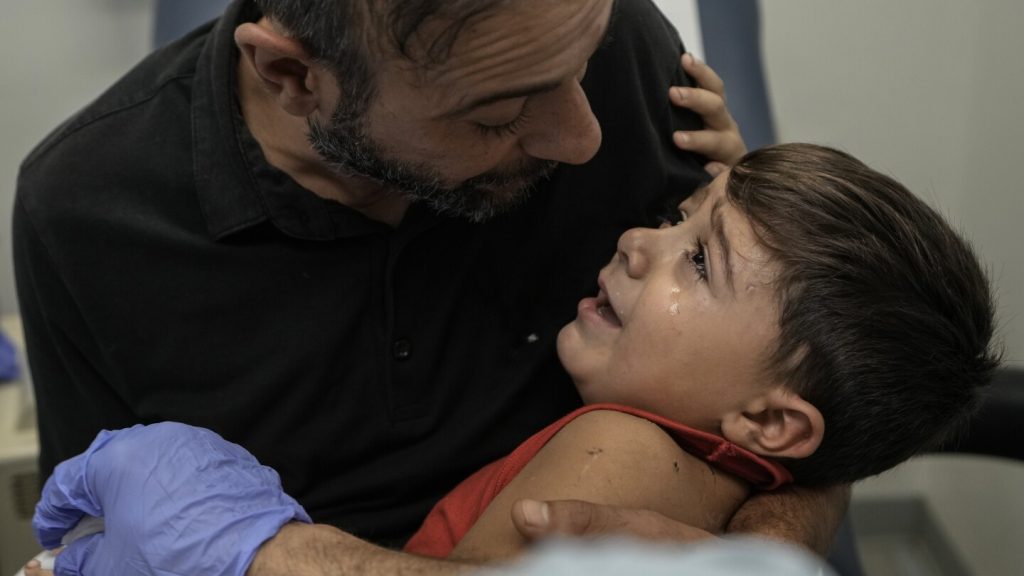Hussein Mikdad, a 4-year-old boy in Beirut, survived an Israeli airstrike that killed 18 members of his family, including his mother and three siblings. Despite being physically injured and recovering from surgery, his emotional trauma is harder to heal. The ongoing war between Israel and Hezbollah has led to increased airstrikes on residential areas, resulting in a significant number of child casualties and injuries. Children like Hussein and Ivana Skakye, a 2-year-old with severe burns, are facing long roads to recovery, both physically and mentally.
The impact of the war on children is evident in the increasing number of cases being treated by doctors in hospitals across Lebanon. These children are not only dealing with physical injuries but also the psychological effects of experiencing violence at a young age. Displaced from their homes and schools, many children are now living in crowded shelters, where signs of anxiety, hostility, and aggression are becoming prevalent. The trauma of the war is leaving a lasting impact on these young minds and could affect them for a lifetime.
As doctors and medical facilities struggle to cope with the rising number of child casualties, parents like Hussein’s father are left to pick up the pieces of their shattered lives. With homes destroyed and families torn apart, the emotional toll of the war on families is immeasurable. Despite the hardships they face, parents are striving to provide a sense of normalcy and stability for their children, who have lost everything they once knew. The generational trauma caused by the war is expected to have long-lasting effects on the mental health and well-being of these children.
The stories of children like Hussein and Ivana serve as a stark reminder of the human cost of conflict and war. As the violence continues to escalate, more families are being displaced, and more children are being injured or killed. The international community must step in to provide support and assistance to those affected by the war, especially the most vulnerable – the children. Healing the physical and emotional wounds of these young victims will require long-term commitment and resources to ensure they can recover and rebuild their lives in the aftermath of the conflict. It is essential to remember that behind each statistic and headline, there are real people, like Hussein and Ivana, whose lives have been forever changed by the brutal consequences of war.















